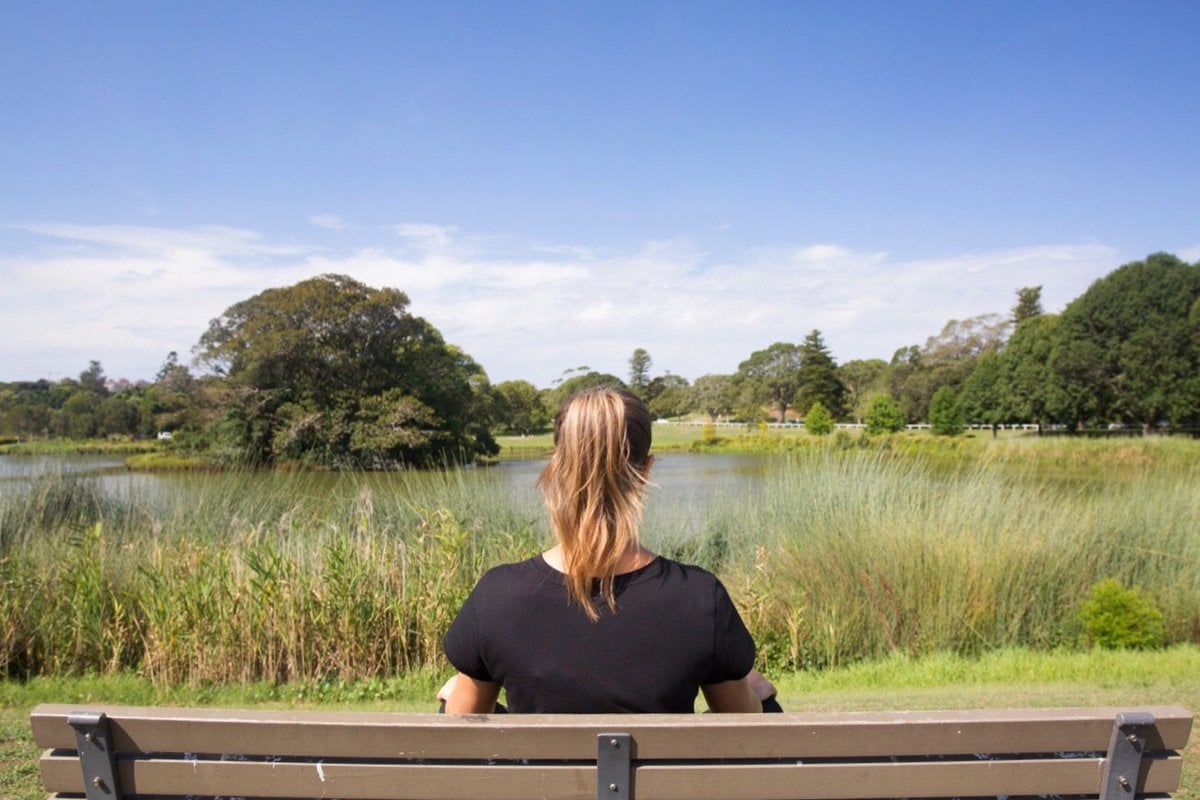
I walked down the hall past the bedroom door.
Slightly ajar, through the gap, I could see the bottom half of his legs stretched out on the bed. That’s all I needed to see to know things were bad. Really bad.
I continued to the kitchen, and shortly after heard him get up and make his way towards us. The man who rounded the corner was not the man I’d seen months earlier, but a ghost.
Even though I hadn’t physically touched the guy in 20 years, like they had minds of their own my arms flung out for a hug faster than I could control them.
Listen to Mamamia's No Filter. Each week, host Mia Freedman has fresh and original conversations with interesting people who have fascinating stories to share. Post continues below.
I felt compelled to shower him in... something. Compassion? Pity? Kindness? My body had more feelings than my brain knew what to do with. This was a man who had caused me incredible pain and impacted my relationships with men, my family and myself. But that doesn’t mean I wanted him to die.
I felt sad. Angry. More sad. More angry. But more than anything, I felt guilty. Had his behaviour been eating away at him and that’s why he’d ended up with cancer?
I had made some terrible comments about him over the years in an immature attempt to get over what he’d done, but I didn’t mean them. Had I somehow made this happen?
